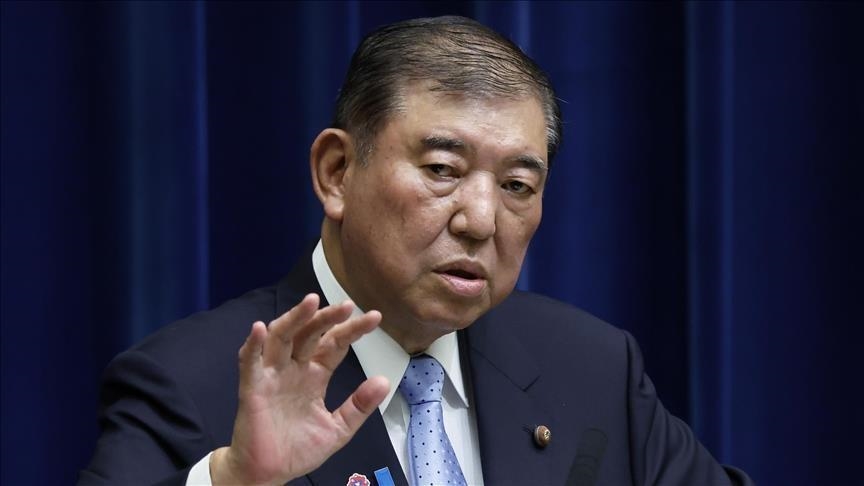Japan must show ‘what we can do’ to prevent another world war: Premier Ishiba
Shigeru Ishiba’s comments come ahead of 80th anniversary of World War II

ISTANBUL
Japan must show “what we can do” to prevent another world war, Prime Minister Shigeru Ishiba said Monday, ahead of the 80th anniversary of the country’s defeat in World War II.
Japan surrendered on Aug. 15, 1945, officially marking the end of World War II and later signed the instrument of surrender on Sept. 2 in 1945, weeks after the US dropped atomic bombs on Nagasaki and Hiroshima cities.
“I believe it is important to release something so as to avoid the fading (of World War II memories) and to never go to war again," Ishiba told lawmakers, amid reports the prime minister was unlikely to express his views on the war anniversary on Aug. 15. He may do so later, Kyodo news reported.
Former Japanese prime ministers have issued statements on the 50th, 60th and 70th anniversaries of the World War II.
These statements have been scrutinized by other nations, particularly those like China and South Korea that suffered under Japanese aggression,” the report said.
Ishiba, whose standing as premier has weakened within his ruling Liberal Democratic Party as well as in the parliament due to defeat in elections, has decided not to issue another war anniversary statement approved by the Japanese Cabinet.
However, he said, Japan must show "what we can do" to prevent another war, instead of "simply expressing thoughts," adding that he will examine the past statements before any new statement.
In 1995, on the 50th anniversary of World War II, then Prime Minister Tomiichi Murayama, leader of a major left-leaning party, had expressed "deep remorse" and offered his "heartfelt apology" for Japan causing damage and suffering to the people of many nations.
Ishiba on Wednesday will attend an event to mark anniversary of atomic bombing of Hiroshima in western Japan.
Later, he will then travel to Nagasaki in southwestern Japan for another event on Saturday, commemorating devastation caused by a US atomic bomb on Aug. 9, 1945.
On Aug. 6, 1945, the US dropped an atomic bomb on Hiroshima, killing an estimated 140,000 people.
A second bomb was dropped on Nagasaki three days later, resulting in about 70,000 additional deaths.
Anadolu Agency website contains only a portion of the news stories offered to subscribers in the AA News Broadcasting System (HAS), and in summarized form. Please contact us for subscription options.







